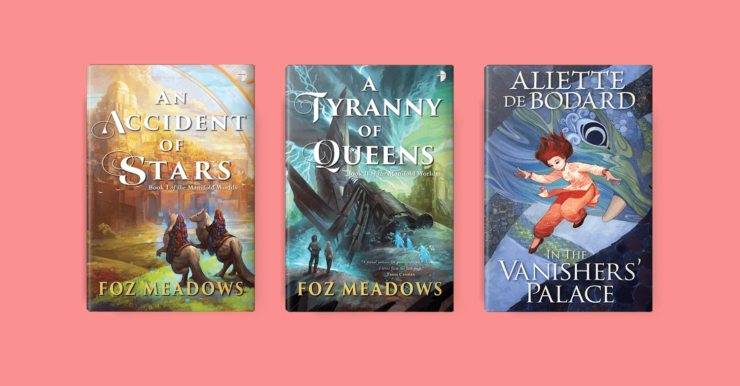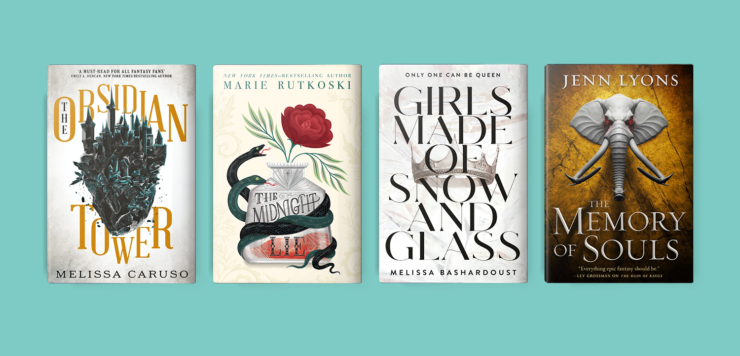Let’s get something out of the way before we start. The Mass Effect franchise ending? IT DOES NOT EXIST AND WE SHALL NEVER SPEAK OF IT AGAIN. Somewhere in an alternate universe, Garrus and Tali are having cocktails on a beach, while Jack teaches junior biotics how to swear, is all I’m saying.*
*Other people like Chuck Wendig and Lee Mandelo have had things to say about Bioware’s failure to stick the dismount of an otherwise brilliantly-written RPG series. So let’s leave it there.
But that’s not what I want to talk about today. What I want to talk about is how—provided one plays as Commander Jane rather than Commander John—the Mass Effect series normalises the idea of the Woman Hero.
You may have noticed that Woman Hero is my term of choice here, rather than Heroine. Whether we like it or not, heroine is still a word that embodies connotations which differ in many and manifest ways from hero. Gothic and romance novels have heroines. Thrillers and action stories have heroes: if these also have heroines, the heroine almost always takes second stage to the hero. Where the heroine has pride of place, she’s (again, almost always) intimately connected to, or in some way (emotionally, intellectually, or politically) dependent upon, a hero, whose actions and reactions are either vital to her as a character, or to the resolution of plot and theme. The reverse is much less true, and much less often true (once one might have said Not at all true), when the Hero stands centre stage. The Hero does not depend: his actions are not contingent actions.
Heroine is a word with a history. That history carries with it a metric crapton(ne) of implications, a bunch of which place heroine in opposition or in contrast to hero.
Commander Jane Shepard is not merely our protagonist and player-avatar in the Mass Effect franchise. She’s an ???? in practically the original Greek sense: a warrior of outstanding (legendary, potentially superhuman) achievements. Moreover, since Shepard’s interactions with other characters remain substantially the same regardless of whether one is a John or a Jane, it’s established that Commander Jane Shepard isn’t remarkable because she’s a woman. She’s extraordinary because she’s Shepard. This is reinforced by the ubiquity of other female characters who possess a wide array of competences: Gunnery Chief Ashley Williams, asari archaeologist/information broker Liara T’Soni, quarian engineer Tali’Zorah vas Neema, Doctor Chakwas, Miranda Lawson, the asari Justicar Samara, and human weapon of mass destruction Jack (“Subject Zero”). And although the visible people of the human Alliance’s high command trend male, Mass Effect‘s galaxy at large is populated with a multitude of interesting women, both human and alien.
And Shepard.
Marie Brennan wrote something pertinent to this disquisition at SF Novelists, not so long ago. In “The Effect She Can Have,” concerning another Bioware property, Dragon Age 2, Brennan says:
“It took me a while, though, to figure out that there was something else going on in my reaction—something beyond appreciation of the clever structural game the writers were playing.
She.
… [I]t allows you to experience the novelty of a woman being the most important damn person in the world.”
The most important damn person in the world.
There’s one scene in particular in Mass Effect 3 where that’s hammered home with a vengeance. How often is the “most famous officer” referred to with a female pronoun?
Dr. Liara T’Soni: Shepard was also a deadly tactical fighter. Most enemies never saw her coming. She was a soldier, and a leader—one who made peace where she could. And it was a privilege to know her.
The dialogue will be different depending on the game one plays. But the sentiment is the same. Commander Jane Shepard isn’t an extraordinary woman. She’s simply extraordinary. Full stop. No qualifiers. When one considers the amount of crap extraordinary people who are also women have directed at them even today—the likes of Hilary Clinton and Angela Merkel in the political realm,** household names like Lady Gaga, writers like Toni Morrison—this is immensely validating.***
**Whatever one thinks of their politics, there’s no escaping the fact that achieving their present positions took extraordinary drive.
***In researching this post, I discovered that Canada’s first female Major-General was appointed in 1994, while in 1995, Norway appointed the first ever female commander of a submarine. And as of 2005, the British forces have permitted female soldiers to enter the new Special Reconnaissance Regiment—which is the only Special Forces regiment in Britain to recruit women. Speaking of extraordinary.
In “The Effect She Can Have,” Brennan goes on to mention the dislocating effect of “having people speak in such monumental terms about this woman. About any woman… [A] male character can inspire such loyalty in their followers, or scare a room full of people just by walking in”—but as she notes, the female equivalent of this power fantasy remains a (slightly shocking) novelty.
Whatever the Mass Effect franchise’s gender-related worldbuilding flaws (there are male gaze issues with the presentation of the “matriarchal” asari as a species, although these are less pronounced in the final analysis than I feared they would be—and rather less pronounced than many television series which have featured female aliens: I’m looking at you, Torchwood and Doctor Who—and the presentation of the female krogan in Mass Effect 3 as more rational and less warlike than the males is not necessarily the best of all possible decisions that could be made), the manner in which it assumes (on grounds of gender, at least) an equal-opportunity future (and peoples its background across the three instalments with human women and men of all orientations: I confess, I did a little chair-dance when I realised there were romance options in ME3 that only worked for characters attracted to the same sex) is a choice that remains radical in its implications.
The manner in which it presents the Woman Hero as normal, as a character, and as a choice, in the case of Commander Jane Shepard, also remains radical. Playing as Commander John Shepard, I found myself annoyed at how predictable the hero’s development—and dialogue—could be. Playing as Commander Jane…
It was refreshing, and satisfying, and disorienting all at once. But the arc of the story is the same. Merely by removing the emphasis from the Woman part of heroine to the Hero part—in creating a Woman Hero who is extraordinary as a Hero, rather than as a Woman—Bioware made the experience innovative and fresh.
Perhaps in another generation or three, the Woman Hero will be as Normal (and annoying) as the square-jawed Hero himself. But right now?
Right now, I find Commander Jane Shepard delightful.
Follow Liz Bourke’s feminist SFF column Sleeps With Monsters here.
Image by DeviantArt user DazUki
Liz Bourke also appreciates the fact that several of the romance options in the Mass Effect franchise involved smart characters. Competence is sexy and brains are hot.













